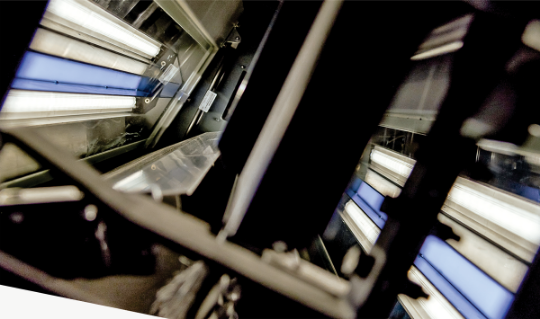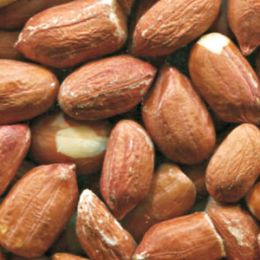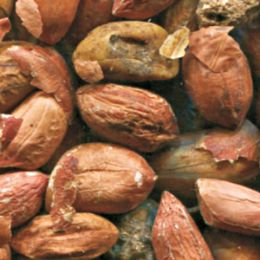Result of peanut cleaning
from impurities with color sorter
Peanut also known as the groundnut and taxonomically classified as Arachis hypogaea, is a legume crop grown mainly for its edible seeds. It is widely grown in the tropics and subtropics, being important to both small and large commercial producers. It is classified as both a grain legume and, due to its high oil content, an oil crop.
Peanuts are often used in food production being processed in such ways as drying, roasting, pressing, milling and grinding for producing snacks, oil, flour etc.
Peanuts have a variety of industrial end uses. Paint, varnish, lubricating oil, leather dressings, furniture polish, insecticides, and nitroglycerin are made from peanut oil. Soap is made from saponified oil, and many cosmetics contain peanut oil and its derivatives.
The protein portion is used in the manufacture of some textile fibers. Peanut shells are used in the manufacture of plastic, wallboard, abrasives, fuel, cellulose (used in rayon and paper), and mucilage (glue).
- Mineral contaminants (soil, sand, dust etc.);
- Organic impurities (shell, skin, peduncle, node parts, leaves etc.);
- Wild seeds;
- Other cultivar seeds;
- Bad discolored peanuts or beans with obviously rotten seeds (seed lobes)
- Unbroken and broken (if more than half is left) if their presense is more than 3,0 % (up to 3,0 % included to accepted seeds);
- Broken (if more than half is left);
- Eroded;
- Pressed ;
- Undeveloped (shriveled);
- Sprouted;
- Defected – each partly discolored kernels as a result of drying, heating of grain or infected (rotten, molded)
Color sorters
for peanut cleaning


